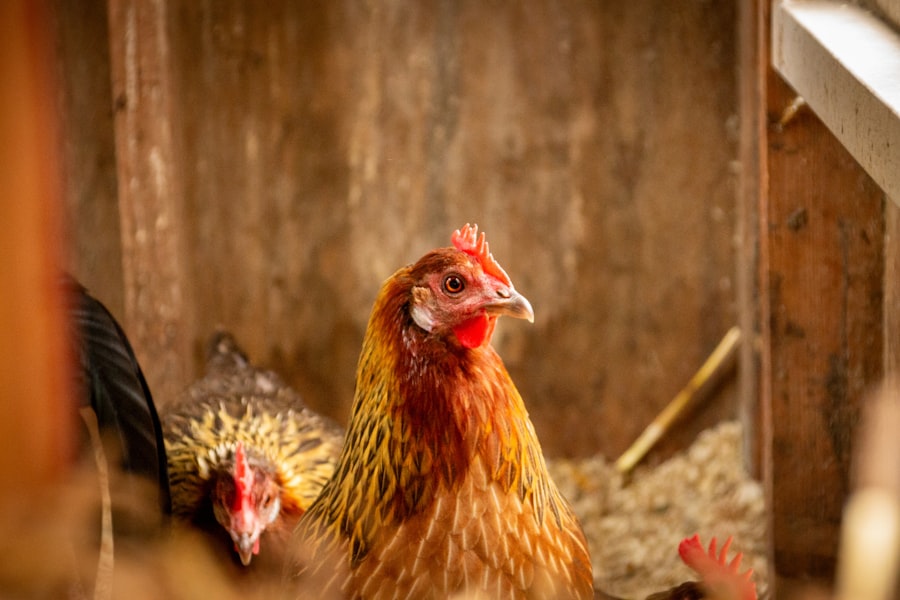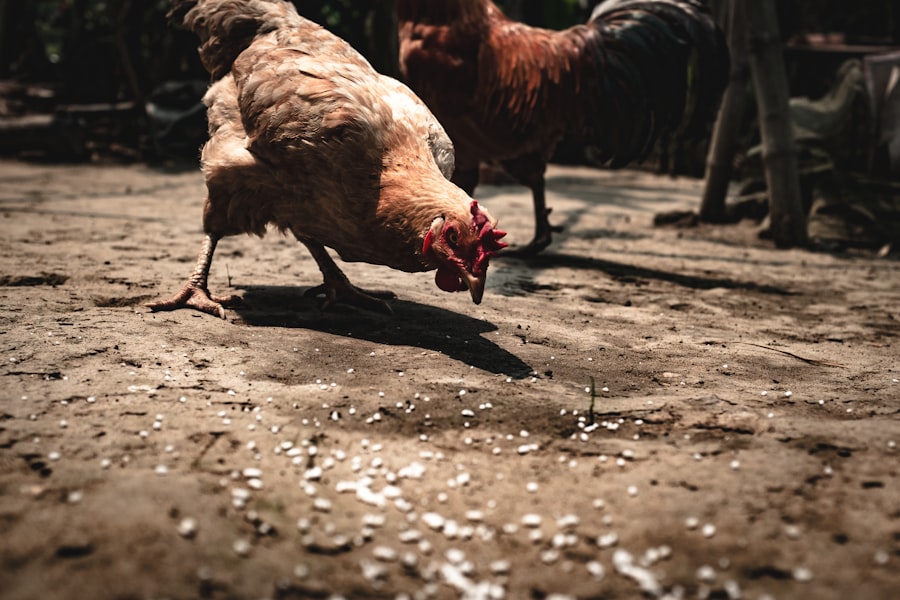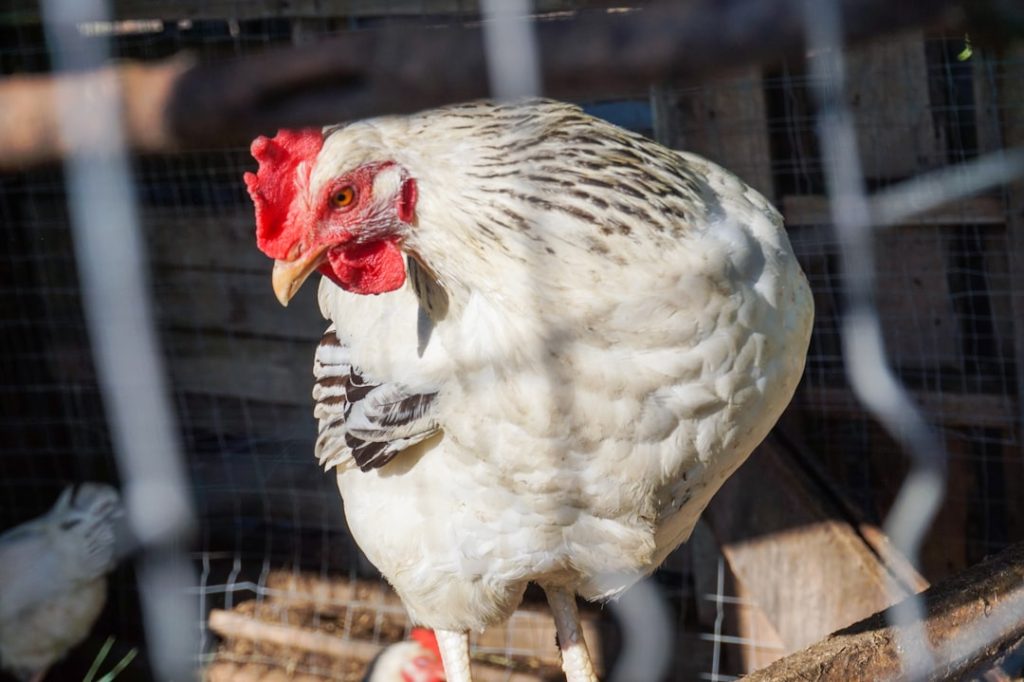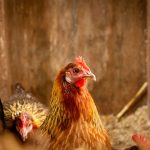Chicken keeping has gained popularity in recent years due to increased interest in sustainable living and self-sufficiency. Chickens provide multiple benefits, including fresh eggs, natural pest control, and garden fertilizer. They are suitable for both rural and urban environments and can be an enjoyable experience for individuals of all ages.
Chickens are relatively easy to care for, making them ideal for beginners in livestock raising. They require a secure coop and run for protection, a balanced diet, and regular maintenance to ensure their health. With proper knowledge and preparation, individuals can successfully raise a small flock in their backyard or on a homestead.
Essential aspects of chicken keeping include selecting appropriate breeds for the local environment, providing proper nutrition, and maintaining the birds’ overall health. These factors contribute to the success of a backyard flock and the satisfaction of the chicken keeper.
Table of Contents
- 1 Choosing the Right Breed for Your Environment
- 2 Setting Up a Coop and Run
- 3 Feeding and Caring for Your Chickens
- 4 Health and Disease Prevention
- 5 Breeding and Raising Chicks
- 6 Tips for Integrating Chickens into Your Lifestyle
- 7 FAQs
- 7.1 What are the benefits of keeping chickens in Australia?
- 7.2 What are the legal requirements for keeping chickens in Australia?
- 7.3 What are the different breeds of chickens suitable for Australian climates?
- 7.4 What should be considered when setting up a chicken coop in Australia?
- 7.5 What are the key considerations for feeding and caring for chickens in Australia?
Key Takeaways
- Keeping chickens can be a rewarding and enjoyable hobby for anyone, regardless of their living situation.
- When choosing a breed, consider factors such as climate, space, and egg production to ensure the best fit for your environment.
- Setting up a coop and run requires careful planning to provide a safe and comfortable living space for your chickens.
- Proper nutrition and regular care are essential for keeping chickens healthy and happy.
- Preventing diseases through cleanliness, vaccination, and regular health checks is crucial for maintaining a thriving flock.
Choosing the Right Breed for Your Environment
Climate Considerations
Some breeds excel in cold climates, while others thrive in hot and humid conditions. It’s essential to choose a breed that can adapt to your local climate.
Space and Purpose
If you live in an urban area with limited space, consider smaller breeds known for their gentle nature and ability to adapt to confinement. On the other hand, if you have a large backyard or rural property, you can opt for breeds renowned for their foraging abilities and egg-laying capacity.
Defining Your Needs
It’s crucial to determine the primary purpose of keeping chickens. Are you interested in raising chickens for eggs, meat, or both? Some breeds are celebrated for their exceptional egg production, while others are prized for their flavorful meat. Additionally, if you have children or desire a friendly and sociable breed, there are many options available.
Setting Up a Coop and Run

One of the most important aspects of keeping chickens is providing them with a safe and comfortable living environment. A well-designed coop and run will not only protect your chickens from predators and the elements but also provide them with ample space to roam and exercise. When setting up a coop and run, it’s essential to consider the size of your flock, the layout of your property, and any local regulations or restrictions that may apply.
The coop should be spacious enough to accommodate your chickens comfortably, with at least 2-3 square feet of space per bird inside the coop and 8-10 square feet per bird in the run. It should also be well-ventilated to prevent moisture buildup and allow for fresh air circulation. Additionally, the coop should have nesting boxes for egg-laying, roosting bars for perching at night, and easy access for cleaning and maintenance.
The run should be securely fenced to prevent predators from gaining access and provide plenty of room for your chickens to scratch, peck, and forage. It’s important to provide enrichment such as dust baths, perches, and natural vegetation to keep your chickens entertained and stimulated. By creating a safe and comfortable coop and run for your chickens, you can ensure that they lead happy and healthy lives.
Feeding and Caring for Your Chickens
Feeding and caring for your chickens is an essential part of keeping them healthy and productive. A balanced diet is crucial for egg production, growth, and overall well-being. Chickens require a combination of grains, protein, vitamins, and minerals to thrive.
A commercial layer feed is a convenient option that provides all the essential nutrients for laying hens, but you can also supplement their diet with kitchen scraps, fruits, vegetables, and occasional treats such as mealworms or sunflower seeds. In addition to providing a nutritious diet, it’s important to ensure that your chickens have access to clean water at all times. Water is essential for digestion, temperature regulation, and overall health.
Regularly cleaning and refilling waterers will help prevent the spread of disease and keep your chickens hydrated. Caring for your chickens also involves regular health checks, grooming, and parasite control. Inspecting your chickens for signs of illness or injury, trimming their nails and beaks as needed, and treating them for external parasites such as mites or lice will help keep them in top condition.
By providing proper nutrition and attentive care, you can ensure that your chickens lead happy and healthy lives.
Health and Disease Prevention
Maintaining the health of your flock is crucial for successful chicken keeping. Preventing disease through good management practices is key to ensuring the well-being of your chickens. Regularly cleaning the coop and run, providing proper nutrition, and minimizing stress are important steps in disease prevention.
It’s also essential to be vigilant about biosecurity measures to prevent the introduction of diseases into your flock. This includes quarantining new birds before introducing them to your existing flock, limiting visitors to your coop and run, and practicing good hygiene when handling your chickens. In addition to disease prevention, it’s important to be familiar with common health issues that can affect chickens, such as respiratory infections, parasites, and reproductive disorders.
Knowing the signs of illness and seeking veterinary care when necessary can help prevent minor issues from becoming major problems. By staying informed about best practices for health and disease prevention, you can help ensure that your chickens remain healthy and productive members of your homestead or backyard flock.
Breeding and Raising Chicks

Genetic Diversity and Breeding Pair Selection
When breeding chickens, it’s crucial to select healthy breeding stock with desirable traits such as good egg production, strong immune systems, and friendly dispositions. By carefully choosing which birds to breed, you can help maintain or improve the overall quality of your flock.
Raising Chicks: Providing Optimal Care
Raising chicks requires careful attention to their needs for warmth, nutrition, and protection. Providing a brooder with a heat source, clean bedding, and access to chick starter feed will help ensure that your chicks grow into healthy adults. It’s also important to monitor their development closely and provide appropriate care as they grow.
The Rewards of Breeding and Raising Chicks
Breeding and raising chicks can be a fulfilling aspect of chicken keeping that allows you to play a role in the continuation of these fascinating creatures. By approaching breeding with care and consideration, you can contribute to the long-term success of your flock.
Tips for Integrating Chickens into Your Lifestyle
Integrating chickens into your lifestyle can be a fun and rewarding experience that adds a touch of country charm to your everyday routine. Whether you’re a seasoned homesteader or new to chicken keeping, there are several tips for making the most of your experience with these delightful birds. One tip for integrating chickens into your lifestyle is to involve the whole family in caring for the flock.
Children can learn valuable lessons about responsibility, animal husbandry, and where their food comes from by helping with daily chores such as feeding, collecting eggs, and cleaning the coop. Another tip is to take advantage of the many benefits that chickens offer beyond fresh eggs. Chickens are natural pest controllers that can help keep your garden free of insects and weeds.
Their manure is also a valuable source of fertilizer that can be used to enrich your soil. Additionally, consider incorporating chickens into other aspects of your homestead or garden. For example, you can use chicken manure to create compost for your garden or allow your chickens to free-range in areas where they can help control pests while enjoying fresh air and sunshine.
By embracing the many ways that chickens can enhance your lifestyle, you can create a harmonious relationship with these charming creatures that brings joy and practical benefits to your daily life. In conclusion, keeping chickens can be a fulfilling endeavor that provides fresh eggs, natural pest control, fertilizer for your garden, and endless entertainment. By choosing the right breed for your environment, setting up a secure coop and run, providing proper nutrition and care, preventing disease, breeding and raising chicks responsibly, and integrating chickens into your lifestyle in meaningful ways, you can enjoy all the benefits that these delightful birds have to offer.
Whether you’re new to chicken keeping or have years of experience, there’s always something new to learn about these fascinating creatures that have been cherished by humans for centuries.
If you’re interested in learning more about keeping chickens, you might also want to check out this article on chicken coop door size. It’s a great resource for understanding the importance of the right size door for your chicken coop and how it can impact the health and safety of your flock. This article is part of a comprehensive guide to poultry care, which includes information on breeding geese and feeding options for geese and chickens.
FAQs
What are the benefits of keeping chickens in Australia?
Keeping chickens in Australia can provide a sustainable source of fresh eggs, natural pest control in the garden, and a source of organic fertilizer for the soil. Additionally, chickens can be great pets and provide a sense of connection to nature.
What are the legal requirements for keeping chickens in Australia?
The legal requirements for keeping chickens in Australia vary by state and local council. Generally, there are regulations regarding the number of chickens allowed, coop size and placement, and hygiene standards. It is important to check with local authorities to ensure compliance with regulations.
What are the different breeds of chickens suitable for Australian climates?
There are several chicken breeds that are well-suited to Australian climates, including the Australorp, Isa Brown, Rhode Island Red, and Sussex. These breeds are known for their ability to tolerate a range of temperatures and are popular choices for backyard chicken keeping in Australia.
What should be considered when setting up a chicken coop in Australia?
When setting up a chicken coop in Australia, it is important to consider factors such as protection from predators, adequate ventilation, and access to food and water. The coop should also be designed to provide enough space for the number of chickens being kept and be easy to clean and maintain.
What are the key considerations for feeding and caring for chickens in Australia?
Feeding and caring for chickens in Australia involves providing a balanced diet of commercial feed, fresh water, and occasional treats such as fruits and vegetables. It is important to monitor the health of the chickens, provide regular veterinary care, and ensure they have access to a clean and safe environment.
Meet Walter, the feathered-friend fanatic of Florida! Nestled in the sunshine state, Walter struts through life with his feathered companions, clucking his way to happiness. With a coop that’s fancier than a five-star hotel, he’s the Don Juan of the chicken world. When he’s not teaching his hens to do the cha-cha, you’ll find him in a heated debate with his prized rooster, Sir Clucks-a-Lot. Walter’s poultry passion is no yolk; he’s the sunny-side-up guy you never knew you needed in your flock of friends!







